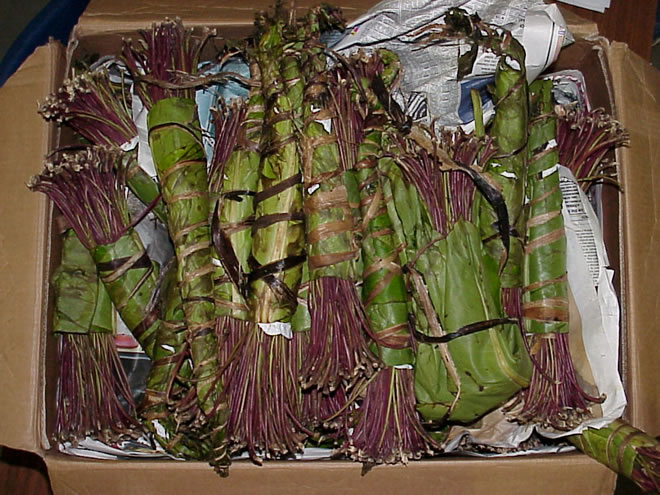
Khat offically became a Class C drug from midnight, with anyone found in possession of the drug facing up to two years in prison

By Christopher Brown
Tuesday June 24, 2014
advertisements
Bristol’s Somali community are coming to terms today with a ban on khat, a herbal stimulant popular in the Horn of Africa and sold in dozens of businesses in the city.Khat offically became a Class C drug from midnight, with anyone found in possession of the drug facing up to two years in prison. Anyone producing or supplying it face a maximum jail sentence of 14 years.
A system similar to a cannabis warning system will be applied by the police. Those caught in possession of khat for the first time will receive a warning. A £60 fine applies for a second possession offence and those with a third possession offence face arrest.
Almost 30 businesses in Bristol selling khat may have to close, according to a BBC survey.
Most of the city’s Somalis welcome the ban but are worried the community has not had time to “prepare and adapt”.
Bristol City Council said it was working to help those addicted to the substance wean themselves off, while traders who relied on income from khat would be helped with language training to make themselves “more employable”.
Peter Anderson, the council’s service manager for crime and substance misuse, said: “It is difficult to fully predict the impact khat classification will have on the Somali community until it happens but the community itself has been taking an active role in finding its own solutions.
“As with other addictive substances around 5% are what would be considered problematic users and need more help to stop their dependence. The risk is that they will switch to other drugs. We are signposting people who need help with addiction to treatment services in the area so they can get the support they need.”
Women in the Somali community – which numbers 10,000 in Bristol – have widely supported the ban saying that khat use leads to more incidents of domestic abuse and family breakdown as men spend much time away from their families chewing khat with other men.
BCC added it is “working with the Somali community to signpost traders to appropriate employment and business support services to help facilitate the transition from khat being legal to being a banned substance”.
Its emphasis for users – whose English may not be as good as the traders – is to assist them to access English language courses which are free for those who are unemployed so they can improve their chances of employment.
Its work is perhaps not as high-profile as that carried out in London, where traders are being explicitly encouraged to turn their khat houses – known as mafrishes – into cafes. Alternatives such as taxi driving were also suggested to those involved in importing and transporting the drug.